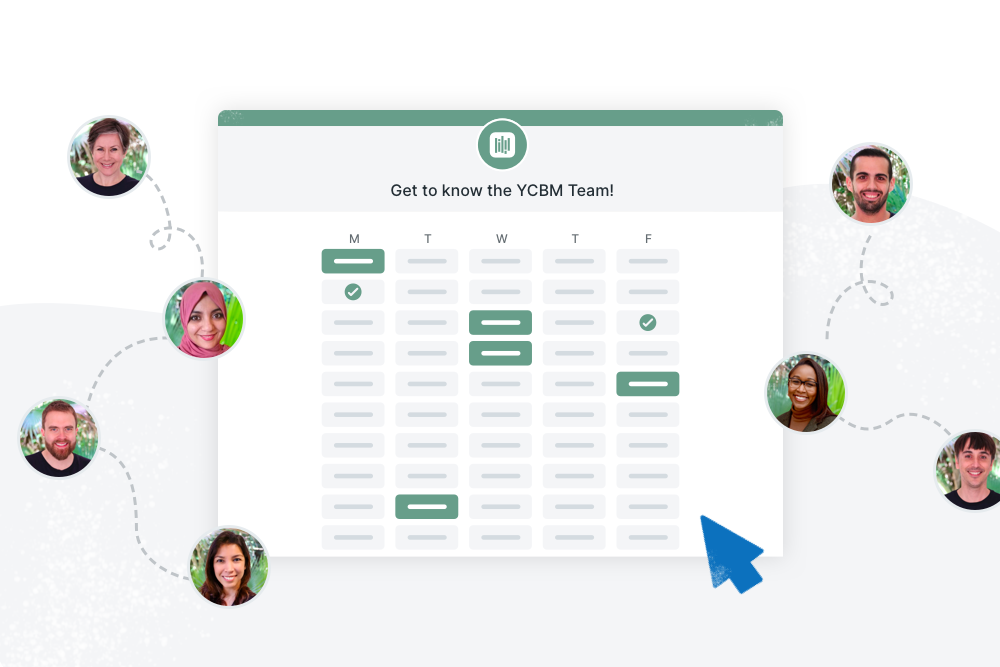Notion’s Calendar Capabilities: A Deep Dive into Scheduling, Group, and Limitations
Associated Articles: Notion’s Calendar Capabilities: A Deep Dive into Scheduling, Group, and Limitations
Introduction
On this auspicious event, we’re delighted to delve into the intriguing subject associated to Notion’s Calendar Capabilities: A Deep Dive into Scheduling, Group, and Limitations. Let’s weave fascinating info and supply recent views to the readers.
Desk of Content material
Notion’s Calendar Capabilities: A Deep Dive into Scheduling, Group, and Limitations

Notion, the all-in-one workspace, has quickly gained reputation for its versatility and customization. Whereas not a devoted calendar utility like Google Calendar or Outlook, Notion provides sturdy calendar performance that integrates seamlessly with its different options. This text delves deep into Notion’s calendar capabilities, exploring its strengths, weaknesses, and in the end answering the query: is Notion’s calendar adequate on your wants?
Understanding Notion’s Calendar Method:
Notion does not possess a standalone calendar utility within the conventional sense. As an alternative, it provides calendar views inside databases. This implies you create a database – a structured assortment of data – after which select a "Calendar" view to visualise that information chronologically. This strategy provides important flexibility but in addition presents some limitations in comparison with devoted calendar purposes.
Constructing Your Notion Calendar:
The method of making a purposeful calendar in Notion includes a number of steps:
-
Making a Database: You start by creating a brand new database. The properties you add to this database decide what info seems in your calendar view. Important properties embody:
- Identify: The title of your occasion.
- Date: That is essential for the calendar view, specifying the beginning date of the occasion. You may also add a "Date Vary" property for occasions spanning a number of days.
- Time: Specifies the beginning and finish instances of your occasion. That is optionally available however extremely really useful for correct scheduling.
- Standing: Tracks the progress or completion standing of an occasion (e.g., To Do, In Progress, Accomplished).
- Precedence: Permits you to prioritize occasions based mostly on significance.
- Folks: Assign people or groups liable for the occasion.
- Location: Specify the situation of the occasion, both bodily or digital.
- Hyperlink: Add hyperlinks to related paperwork or assets.
-
Selecting the Calendar View: As soon as your database is populated with related properties, you choose the "Calendar" view from the view choices. This immediately transforms your database into a visible calendar. You possibly can customise the calendar’s look by adjusting colours, fonts, and the data displayed for every occasion.
-
Populating the Calendar: Add entries to your database, filling within the related properties for every occasion. Notion permits for fast entry, enabling environment friendly scheduling and administration of your duties and appointments.
Notion’s Calendar Strengths:
-
Customization: Notion’s energy lies in its unmatched customization. You possibly can tailor your calendar to mirror your particular wants, in contrast to pre-built calendar purposes with restricted flexibility. You possibly can create a number of calendars for various initiatives, groups, or private features of your life.
-
Integration with Different Notion Options: This can be a important benefit. Your calendar seamlessly integrates with different Notion options like databases, duties, notes, and wikis. This enables for a centralized workspace the place all of your info is linked. Clicking on an occasion in your calendar can immediately take you to associated notes, paperwork, or duties.
-
Highly effective Filtering and Sorting: Notion’s filtering capabilities help you concentrate on particular occasions based mostly on properties like standing, precedence, or assigned people. This helps you prioritize your duties and handle your time successfully.
-
A number of Calendar Views: You are not restricted to a single calendar view. You possibly can create a number of views inside the similar database, providing completely different views in your scheduled occasions (e.g., a listing view, a board view, and a calendar view).
-
Templates: Quite a few pre-built templates can be found on-line, permitting you to shortly arrange calendars for numerous functions, comparable to undertaking administration, content material calendars, or private scheduling.
Notion’s Calendar Limitations:
-
No Native Recurring Occasions: Whilst you can manually create recurring occasions by duplicating entries, Notion lacks built-in assist for recurring occasions. This may be time-consuming and error-prone for occasions that repeat commonly. Workarounds exist utilizing formulation and automation, however they add complexity.
-
Restricted Sharing and Collaboration: Sharing and collaborating on Notion calendars is feasible, however it’s not as seamless as in devoted calendar purposes. Whilst you can share your entire database, managing entry permissions and making certain everybody has the right view will be difficult.
-
Efficiency Points with Giant Datasets: Because the variety of entries in your database will increase, Notion’s calendar view can turn into sluggish. Efficiency will be affected by the complexity of your database and the properties you have included.
-
Lack of Superior Calendar Options: Notion lacks some superior options present in devoted calendar purposes, comparable to time zone assist, reminders (although you need to use Notion’s reminders characteristic individually), and integration with different purposes.
-
Steeper Studying Curve: Whereas Notion is user-friendly, mastering its database system and creating a totally purposeful calendar requires a studying curve. Understanding properties, views, and filters is crucial for efficient calendar administration.
Is Notion’s Calendar Proper for You?
Notion’s calendar is a robust device, however its suitability relies on your particular wants and preferences. When you prioritize customization, integration with different workspace instruments, and a extremely versatile system, Notion’s calendar is a superb alternative. Nevertheless, when you require superior options like recurring occasions, seamless collaboration, and sturdy time zone assist, a devoted calendar utility is perhaps extra appropriate.
Take into account these components:
-
Scale of your scheduling wants: For a small variety of occasions, Notion’s calendar works properly. Nevertheless, for large-scale scheduling or managing complicated initiatives with many collaborators, a devoted calendar utility is perhaps extra environment friendly.
-
Significance of recurring occasions: When you closely depend on recurring occasions, Notion’s lack of native assist is perhaps a big disadvantage.
-
Degree of technical proficiency: Whereas Notion is user-friendly, creating and managing a posh calendar requires some understanding of databases and their functionalities.
-
Integration wants: When you worth the combination of your calendar with different features of your workspace, Notion’s built-in strategy is a big benefit.
In conclusion, Notion’s calendar is a compelling different for these looking for a extremely customizable and built-in scheduling resolution. Nevertheless, it is essential to weigh its limitations towards your particular necessities earlier than deciding if it is the best match on your workflow. For a lot of customers, the flexibleness and integration supplied by Notion outweigh its shortcomings, making it a worthwhile a part of their every day productiveness. However for others, a devoted calendar utility may present a extra streamlined and environment friendly expertise.








Closure
Thus, we hope this text has supplied worthwhile insights into Notion’s Calendar Capabilities: A Deep Dive into Scheduling, Group, and Limitations. We thanks for taking the time to learn this text. See you in our subsequent article!